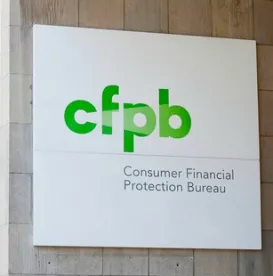This morning, the Senate Banking Committee held a hearing on President Trump’s nomination of Kathy Kraninger to serve as CFPB Director. Although the hearing also included the President’s nomination of Kimberly Reed to serve as President of the Export-Import Bank, most of the questioning was directed to Ms. Kraninger.
Ms. Kraninger currently serves as Program Associate Director for General Government Programs at OMB. A significant amount of the questioning of Ms. Kraninger by Democratic Senators was focused on obtaining information about her role at OMB in the development and implementation of the Trump Administration’s “zero-tolerance” policy for individuals attempting illegal entry into the United States. (Republican Committee Chairman Crapo opened the hearing by rejecting the request of Democratic Senators to postpone the hearing pending Ms. Kraninger’s provision of the documents and other information about her role at OMB that they had requested in a letter sent to Ms. Kraninger.)
Ms. Kraninger was unwilling to provide any information about her involvement beyond stating that she had participated in meetings about the implementation of the zero-tolerance policy but had no role in setting the policy. She declined requests from Democratic Senators to characterize any advice she gave at OMB concerning the policy because, according to Ms. Kraninger, doing so would require her to reveal information about the “deliberative process.” Democratic Senators also attempted to highlight Ms. Kraninger’s lack of previous experience in the financial services industry, either as an employee of a financial institution or a regulator.
The following noteworthy information discussed during the hearing:
-
In her prepared testimony and opening remarks, Ms. Kraninger outlined the following initial priorities for the CFPB, which closely track those of Acting Director Mulvaney:
-
The Bureau should be “fair and transparent, ensuring its actions empower consumers to make good choices and provide certainty for market participants,” with the Bureau making “robust use of cost benefit analysis.” Ms. Kraninger observed that “notice and comment rulemaking is essential for ensuring the proper balancing of all interests” and “also enables consideration of tailoring to reduce the burden of compliance, particularly on consumers and smaller marketplace participants.”
-
The Bureau should work closely with other financial regulators and the states on supervision and enforcement. Ms. Kraninger stated that she would take “aggressive action against bad actors who break the rules by engaging in fraud and other illegal activity.”
-
The Bureau must recognize its duty “to protect sensitive information in its possession.” She would limit the Bureau’s data collection “to what is needed and required under law.”
-
The Bureau must be “accountable to the American people for its actions, including its expenditure of resources.”
-
-
Ms. Kraninger indicated that she was willing to revisit Acting Director Mulvaney’s decisions to reorganize the CFPB’s Office of Fair Lending and its Office of Students and Young Consumers and would approach such review with “an open mind.”
-
While stating that she would be committed to enforcing fair lending laws as CFPB Director, Ms. Kraninger declined to answer Democratic Senator Jones’ question asking her whether she would support the CFPB’s continued use of the disparate impact theory. She responded that she planned to have “detailed conversations” with CFPB staff to understand the CFPB’s position on the use of disparate impact.
-
In response to a question from Democratic Senator Warner suggesting that her support for the use of cost benefit analysis was inconsistent with her desire to limit the Bureau’s data collection, Ms. Kraninger indicated that she was committed to “data-driven decision making” but that it should be based on data that comes in response to Bureau requests for information and other sources rather than from supervised entities.
-
Republican Senator Toomey’s efforts in obtaining a determination from the GAO that the CFPB’s indirect auto finance guidance was a “rule” within the scope of the Congressional Review Act (CRA) resulted in Congress’ use of the CRA to override the guidance. In his questioning of Ms. Kraninger, Senator Toomey used the guidance as an example of a situation in which the CFPB had failed to properly use the Administrative Procedure Act’s notice-and-comment procedures and obtained a commitment from Ms. Kraninger to use such procedures when imposing new CFPB rules. Ms. Kraninger was not willing to state that she agreed with Senator Toomey’s statement that Dodd-Frank Section 1071 (which deals with the collection of data on credit applications made by women- or minority-owned businesses and small businesses) was the “only respect” in which Dodd-Frank requires the CFPB to deal with small businesses. Instead, she indicated that she had not reviewed all federal consumer financial laws but that it was her belief that Congress intended to limit the CFPB’s role in dealing with small businesses.
-
In responding to questions from Democratic Senators critical of the CFPB’s plans to revisit its payday lending rule, Ms. Kraninger indicated that it was “important” to allow the CFPB’s reopening of its rulemaking process to proceed as planned.



 />i
/>i
